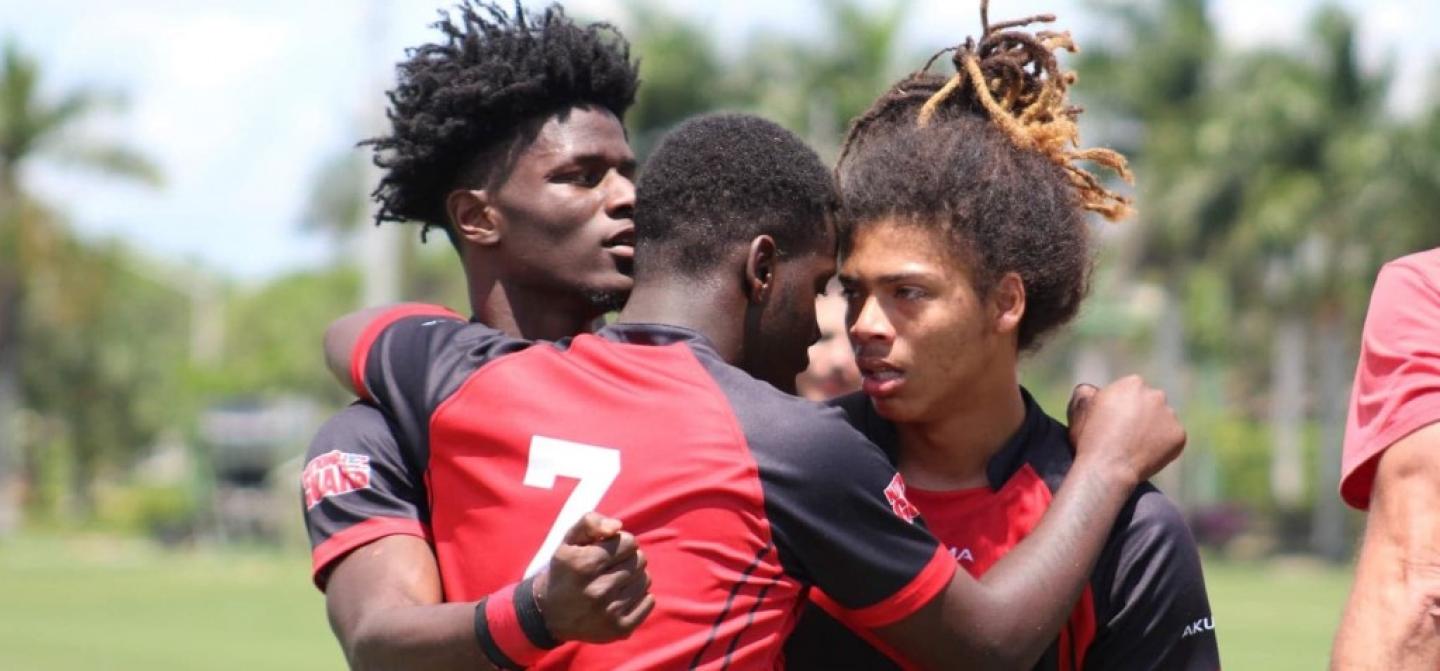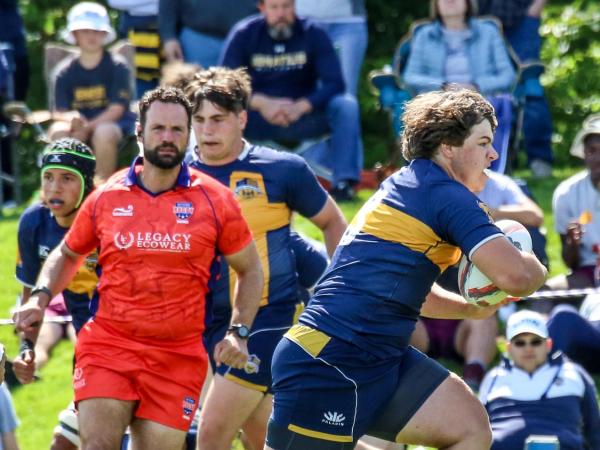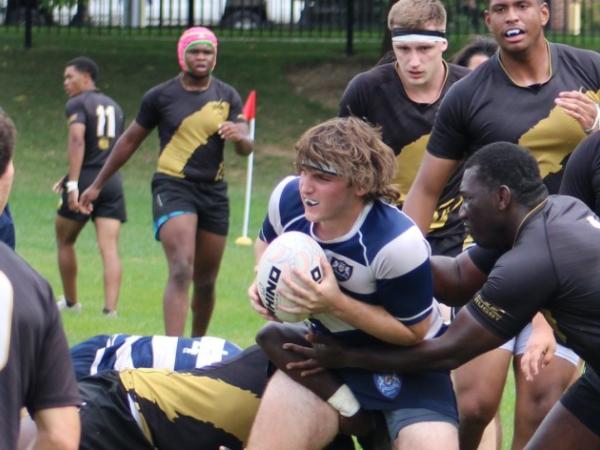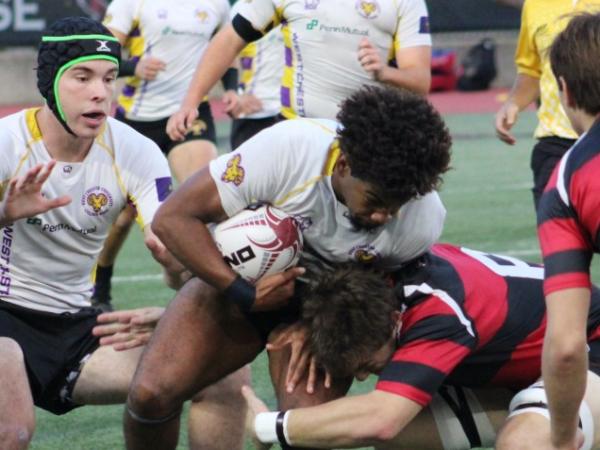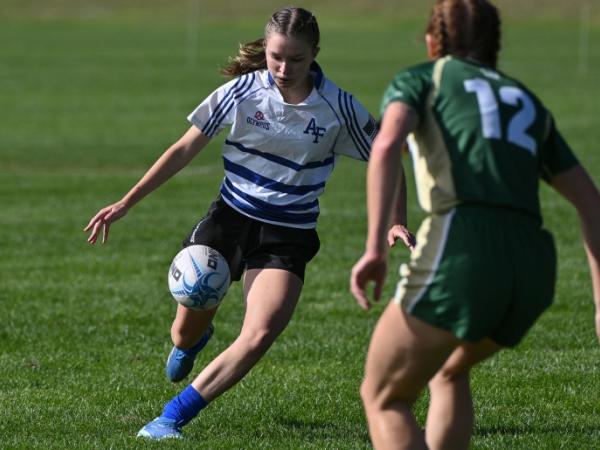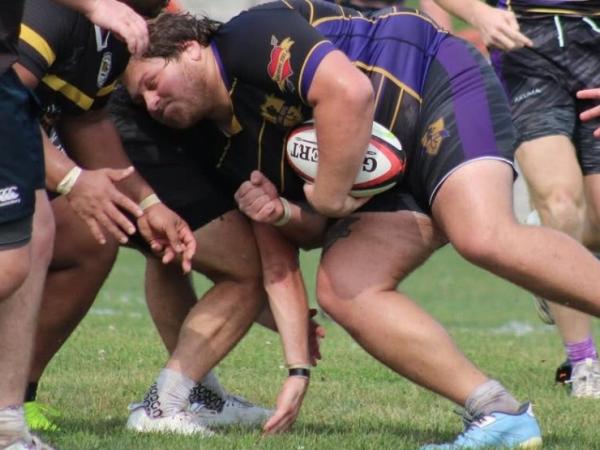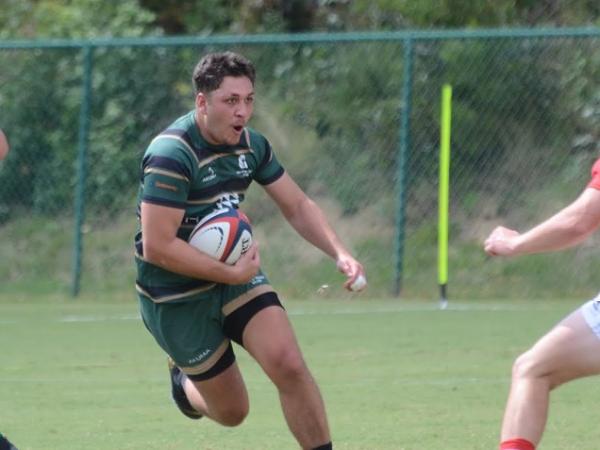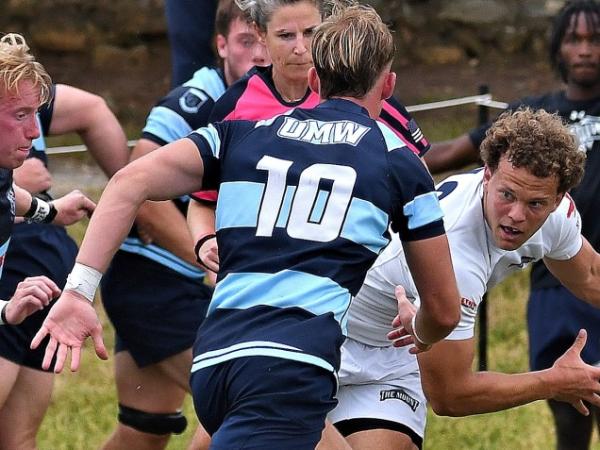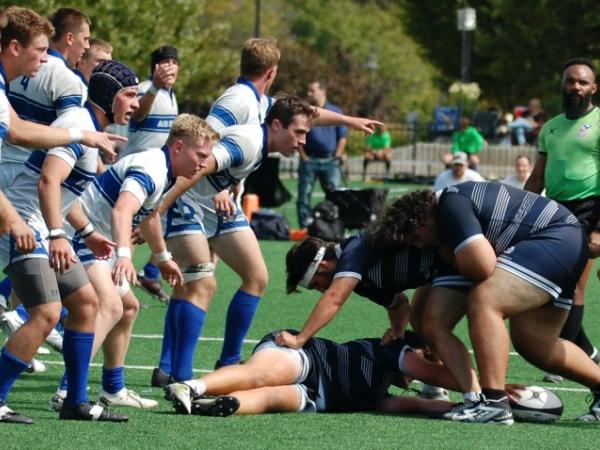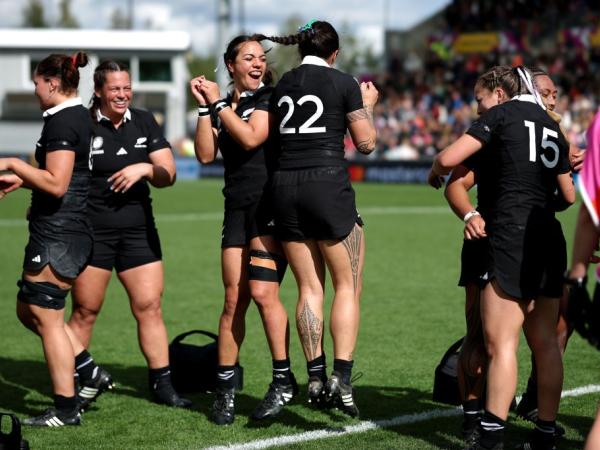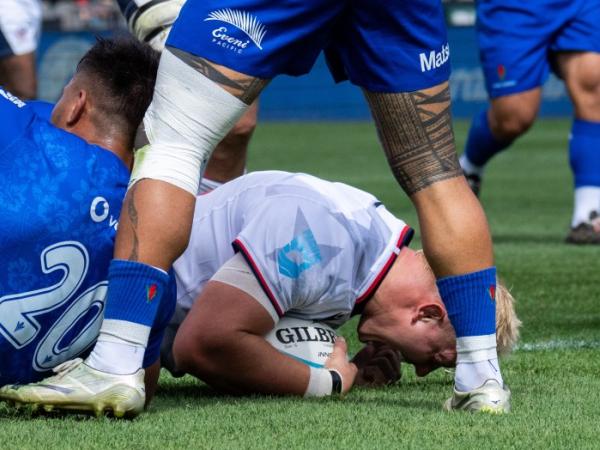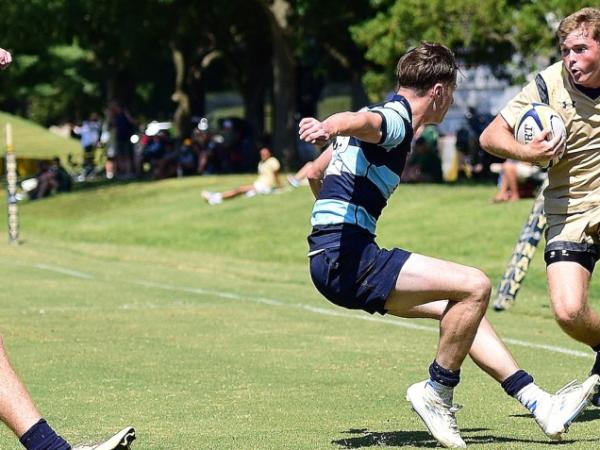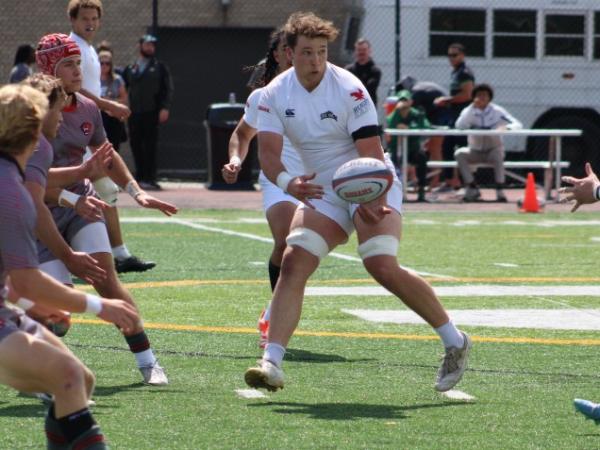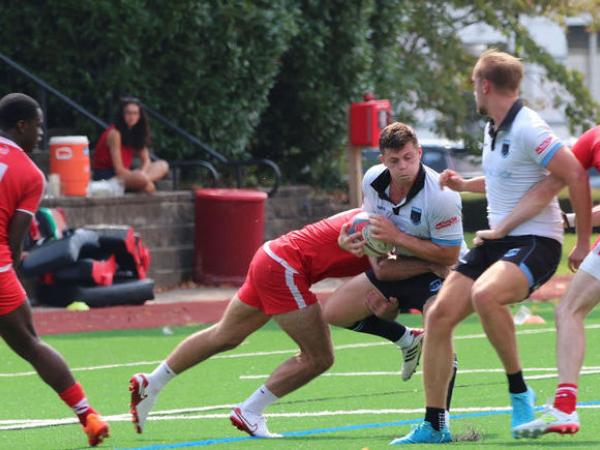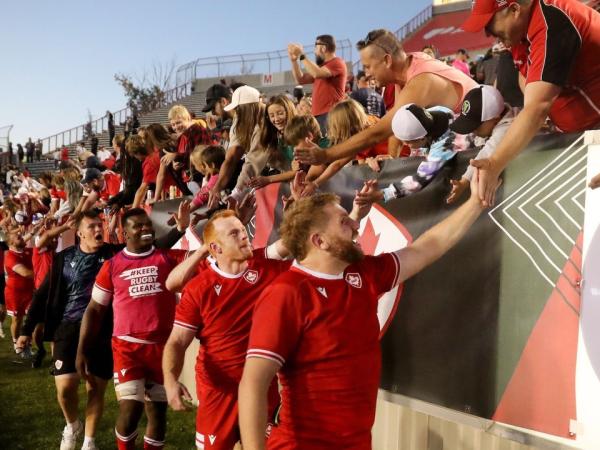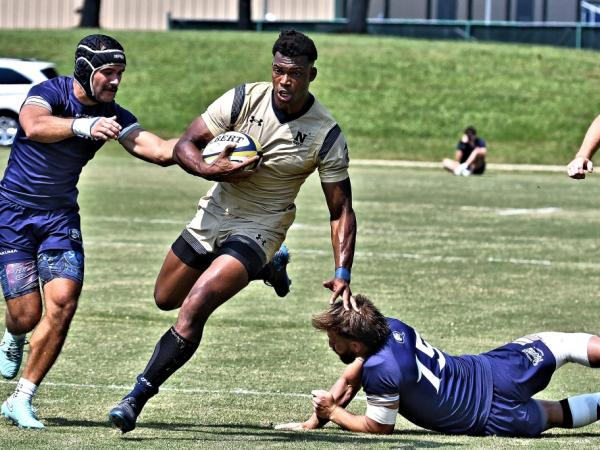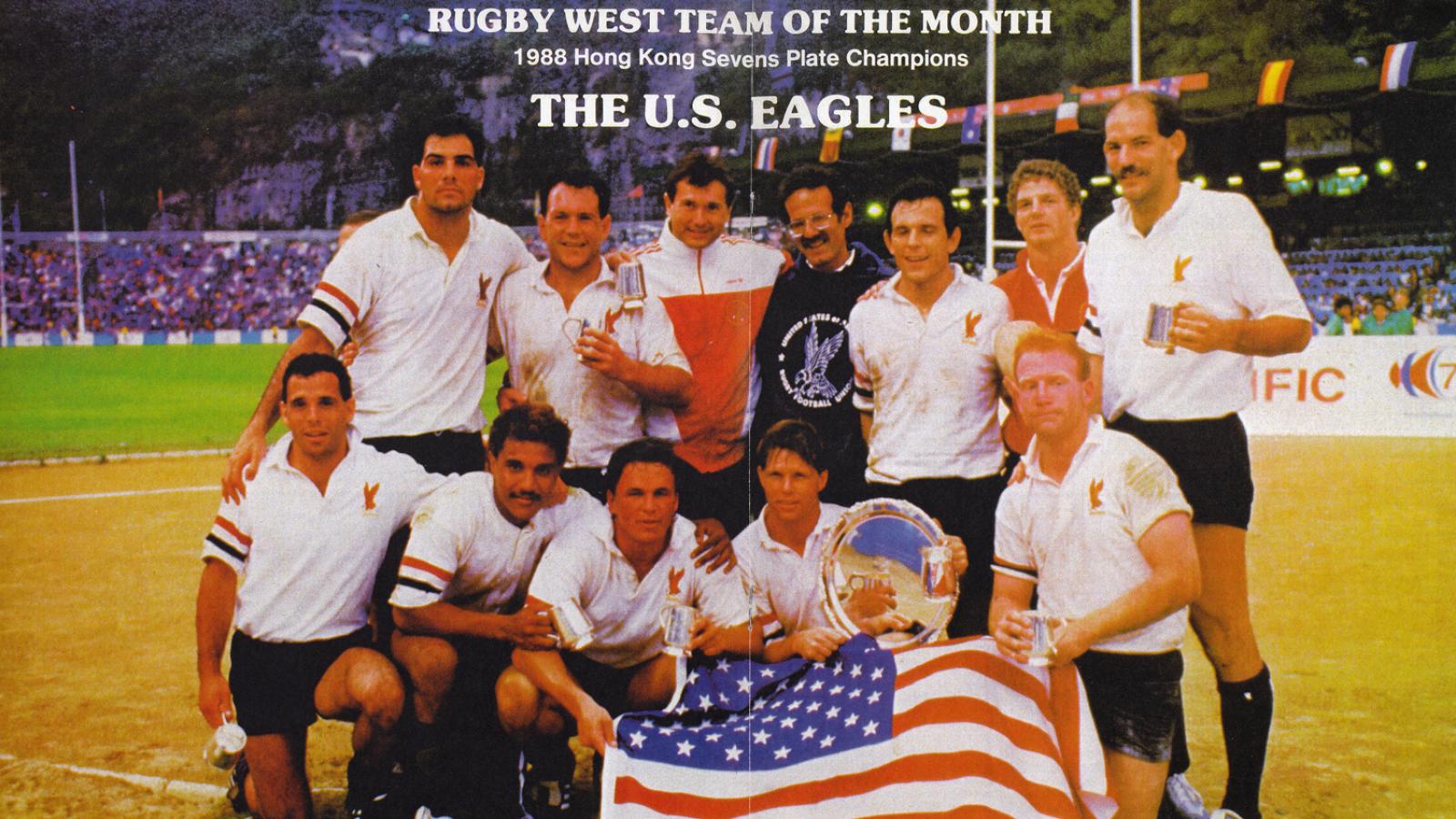The Jacksonville Wolverines came somewhat out of nowhere to win the Florida State high school championship in 2019, and were in a position to challenge for another state title this year, but that’s just the start of the story.
In a sport where many of the strongest HS teams are private schools or teams from affluent areas, the Wolverines buck the trend. Coached by Aaron Church, Jacksonville is a largely African-American team that draws from schools where families often struggle to make ends meet. This program is a different sort of team.
A Chance Meeting
Church took up rugby while he was in the Navy. An All-Navy soccer player, he took quickly to rugby and started to consider playing in college. He was planning to attend the University of Florida when he met Curt Huckaby at a tournament. The founder and father figure of the Arkansas State University told Church he’d seen him play and offered him in-state tuition at Arkansas State.
“That sounded good to me,” said Church. “So I packed up the U-Haul and went to Arkansas. My family asked me where I was going, and I said ‘I don’t know; I have no idea where I’m going!’”
He made it to Jonesboro, Ark., and played four years for Huckaby, the last year ASU’s first in D1. One of Church’s teammates was Blake White, who is now the ASU Head Coach.
All of that led Church to embrace the sport.
“It’s been an amazing journey,” he said. “I benefited so much from the game that I wanted the same for other kids.”
And so Church took on the coaching position for the Wolverines. African-American head coaches are not common on high school rugby, but Church was sure he could reach kids who might not have been exposed to rugby otherwise.
Going Where Other Coaches Won't
With coach Kevin Wathen, Church started visiting high schools. He would go to high schools and talk to football coaches. They wouldn’t ask for kids who were stars on the team or seniors. They were looking to make a bigger impact than that.
“We’d ask for the kids who needed the most guidance,” said Church. “We were looking for kids who weren’t playing. One school had 75 kids on JV football and another 75 on varsity. Most of those kids would practice all season and never get on the field. Playing rugby gave them an opportunity to play the game.”
Kids started to show up. Their parents were just happy the kids were doing something that kept them out of trouble. The players started to have fun.
They expanded the outreach, going to the rough neighborhoods. Church offered free rugby tackling clinics to football teams. All they had to do was give him a few minutes to talk to the players. The recruiting even produced a surprise; one young kid on a school's track team turned out to be from South Africa. Azah Kani wasn't even at Church's presentation—he heard from a friend that there was a rugby team and soon the 15-year-old sprinter was suiting up at fullback for the Wolverines. He is looking to play rugby in college, and also looking to find a way for kids from the poorer parts of South Africa to play rugby in college in the USA.
Once the players started showing up, there were more challenges. Most of the kids didn’t have regular transportation to practice, and so Church started picking them up from school. He changed his work schedule to 6am to 3pm so he could get the kids there.
Some of the kids were struggling in school, so Church called around to schools looking for teachers who could help provide tutoring. Teachers volunteered, happy to help do some extra work to keep the kids in school and passing their courses.
“We tell the guys that academics is the most important thing; if they have to miss practice to study for a big test, then they do that,” said Church. “We practice at a park which has some benches and tables, and we’ll have guys there doing their schoolwork.”
It continues to grow. The players are responding, and Church’s work has been noticed.
Last season, Florida native Perry Baker, the two-time World Rugby Sevens Player of the Year, visited the team for a coaching session and to meet the kids. Here was a rugby player the kids could relate to, from their state, who looked like them, who had become the best in the world through a lot of hard work.
Baker’s message was simple: keep at it.
"It's a little crazy that guys look at you and say 'wow, it's Perry Baker,' but I have always wanted to be an inspiration," Baker told Goff Rugby Report. "When I started out there wasn't really any kids rugby, there was men's rugby in Florida and that's what I played. To see how these kids are all playing now is an inspiration to me. And I go out there, maybe give them some pointers on the breakdown, and talk to them about having fun, but they maybe also see that I look like them; I know everyone has his story and his situation, but I am like them and this is where rugby took me."
Opening Doors
“There is no doubt that there are kids who would not be in school if they weren’t playing rugby,” said Church. “And certainly some kids who would not have gone on to college if it weren’t for rugby.”
For some of the kids, once they graduated high school or turned 18, they really didn’t have anywhere to go.
“If they hadn’t gone on to college they’d be homeless,” said Church.
Still others have gone on to careers in the military, but even if they haven’t, rugby has helped them.
“We’ve connected with the men’s club here in Jacksonville, and we’ve got players learning trades and finding jobs through the club,” said Church. “What they’re learning about the sport is that it’s a way to connect with people from all over the world, or just here in Jacksonville.”
Four players from Jacksonville went on to play at Iowa Central Community College—Symmir Bivens, Andre Butler, Terrence James, and Tony Robinson. In last fall's national fall semifinal win over Virginia Tech, Robinson scored the winning try.
VaShon Mars is another talent coming out of Jacksonville and he plans to attend Iowa Central next year. He met Baker during the sevens star's visit to the team and said he wants to be like the USA wing. It's all about who sees them, said Church.
"If a college shows these kids interest, the kids will go," Church said. "Iowa Central is the only school that came to visit them—not even UNF came—so guess where the kids go."
State champions in 2019, the Jacksonville Wolverines program also records little championships throughout the year. Rugby has once again opened its welcoming arms to young athletes who want something more out of life. They get to play, become part of a team, and have fun. And then, suddenly, thanks to the tireless efforts of the Wolverines coaches, they find that all those other things—diploma, job, positive connections, college—are starting to fall into place.





